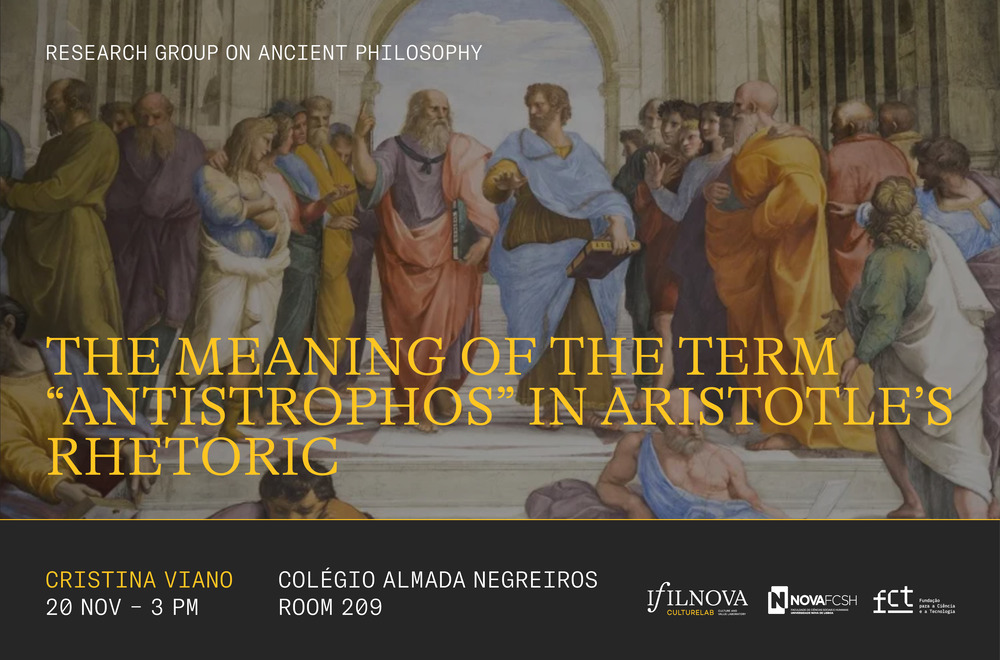The meaning of the term “Antistrophos” in Aristotle’s Rhetoric

In his Rhetoric, Aristotle describes it as ‘the antistrophos of dialectic’, much like Plato equated rhetoric as being to the soul to what culinary art is to the body (Pl. Gor. 465e). Three key points to consider are: (1) Aristotle’s intended meaning of ‘antistrophos’ and its implications for the rhetoric-dialectic relationship. (2) Whether Aristotle’s use of ‘antistrophos’ intentionally echoes Plato’s Gorgias and if their meanings align. (3) In my new Italian translation of Aristotle’s Rhetoric, I propose a fresh interpretation of ‘antistrophos’ that, if accurate, sheds light on Aristotle’s unique perspective on the intricate connection between rhetoric and dialectic, distinct from Plato’s.
Bio
Cristina Viano is Directeur de Recherche at Centre National de la Recherche Scientifique (CNRS), Centre Léon Robin (UMR 8061, Sorbonne-Université, Paris). Her main topics are: the ancient doctrines of matter and causation; Aristotle: natural philosophy, ethics, rhetoric and the theory of passions; Alexandrian alchemy and the relationship with Greek philosophy. She has published La matière des choses. Le livre IV des Météorologiques d’Aristote, et son interprétation par Olympiodore (Paris, Vrin 2006) and, more recently, the Italian translation, with introduction and notes of Aristotle’s Rhetoric (Laterza, Bari, 2021).
Org. António de Castro Caeiro

